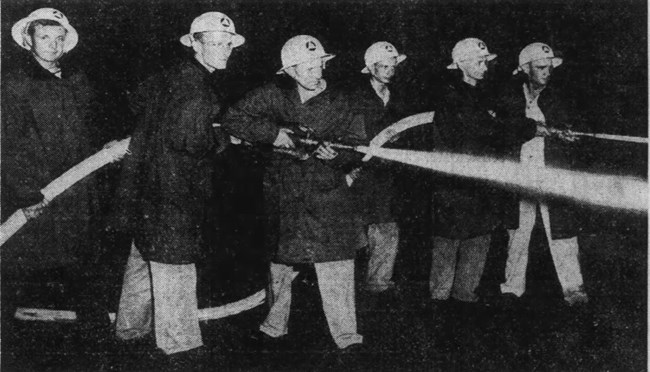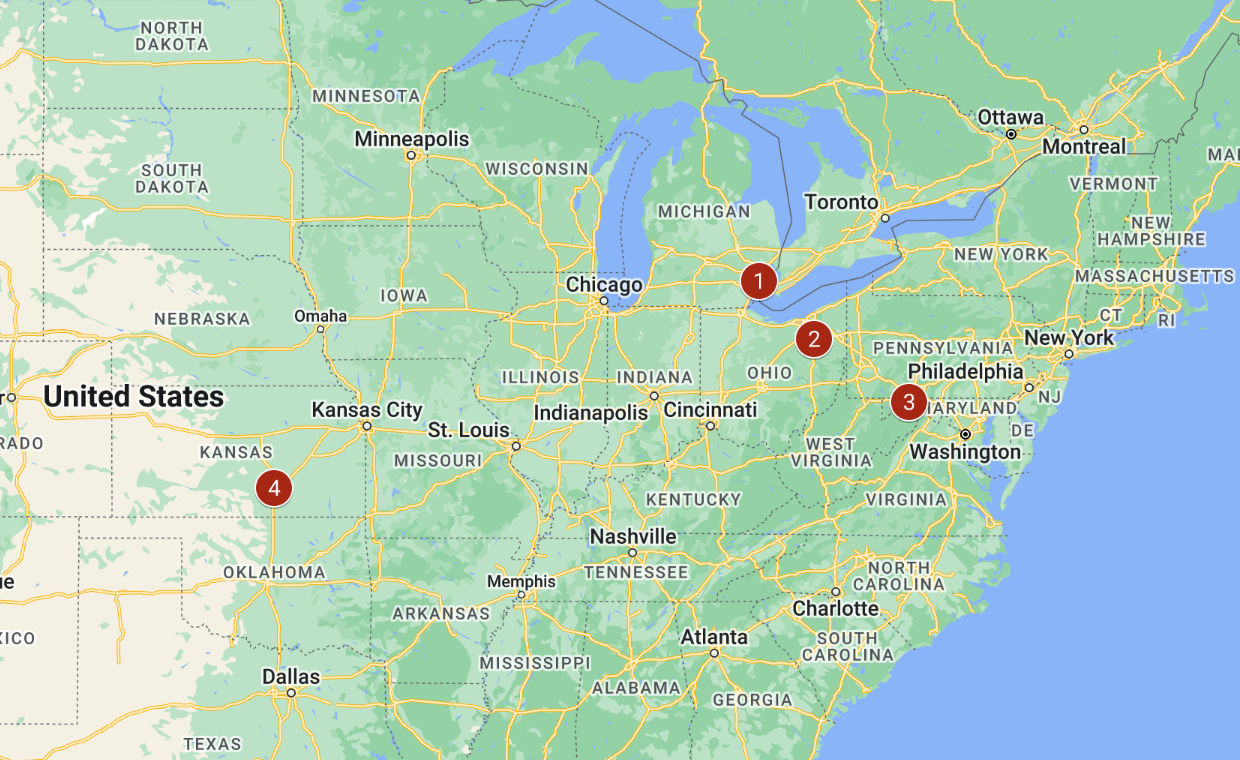
Members of the Wichita “Deaf” Auxiliary Fire Department during training. Rear hose crews are (left) Don Ivan Miller, William Doonan, and Archie G. Greer. Front hose crews are (left) Harold H. Maisch, Everett T. Wimp, and James B. Kaufman.
Wichita Beacon, courtesy of Newspapers.com.
United States Civil Defense, Auxiliary Fire Department for the Deaf
Beyond defense production, disabled workers took on additional wartime responsibilities: In Wichita, Kansas, for example, about 20 deaf men organized an auxiliary fire brigade in May 1942. According to the Wichita Beacon, this was “the only all-deaf auxiliary fire brigade in the United States Civil Defense.”[1] The group was founded to improve relations between the deaf and hearing population of Wichita and to expand equal opportunities for the deaf.
Wichita’s fire chief and captains worked with sign language interpreters to train firefighters in first aid, fire and gas protection, hose handling, ladder handling, and other skills. Many of the deaf auxiliary firefighters took on these duties in addition to their jobs at local defense plants, some working double shifts. The Wichita Beacon profiled a firefighter who attended weekly training sessions with only three hours of sleep between shifts.
For their hard work, dedication and care, the Deaf Auxiliary Firefighters won praise from their local community and national attention. In September 1943, the Auxiliaries gave an exhibition at the State Firefighters’ Association school. The group also attracted the attention of the Red Cross, which asked for information about the first aid instruction they had received. In addition to receiving coverage in local newspapers, the Deaf Auxiliary Firefighters received national recognition. In February 1944, the Civilian Front, a national civil defense weekly, ran a feature article on the unit.
The Secretary of the Interior has designated Wichita, Kansas, an American World War II Heritage City in 2022.
Consider this:
Think about another job or task you have had in the past. What made that experience rewarding or unrewarding?
This article was researched and written by Jade Ryerson, consulting historian for the Office of Cultural Resources Interpretation and Education. It was funded by a cooperative agreement between the National Council for Public History and the National Park Service.

